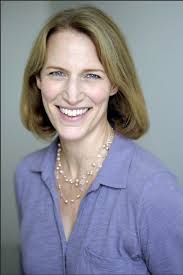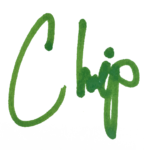
What’s the most important lessons you’ve learned as an editor?
The most important lesson I’ve learned as an editor is to recognize the intrinsic strength of the stories. In my previous work as a reporter, the sentences and paragraphs felt fragile – and to fool with them too much would risk breaking the story apart. Now, however, being an editor has allowed me to truly see how much revision and tinkering can bring to a story. I wish I’d played more when I was a reporter with structure, focus, and endings. I wish I’d felt more like I do now. These days, when I’m working on a story, it feels as if I’m in the basement of my childhood home, in my father’s cozy workshop, seated on a stool at the long, narrow bench. There, I take apart the words, the sentences, the sections and scrutinize them, figuring out the most powerful way to put them together. Once you have the goods from the reporting, you’re set. We should never be scared to try different approaches with the writing.
What’s been the biggest surprise of your editing life?
Of all the surprises that have come with turning myself into an editor and writing coach, perhaps the most striking is how much I would come to love this work. It had never occurred to me to go into editing, since reporting had been my life’s calling. I was sure I’d never find any other job that lit me up from the inside the way reporting did. In those days, hours would pass by like minutes. I loved getting lost inside stories, getting to know strangers, chasing the moments that mattered, tangling apart complicated policies, science, medicine and ethics. It felt like I was tapping every skill in my brain and heart.
But after getting my sea legs in editing, I found myself falling in love again. It’s as if I’m on a new beat, only this time it’s inside the newsroom, and each reporter is a story I’m trying to develop and grow. Just as in reporting, I get lost inside the stories, picking apart the pieces, trying to open up the doors that a reporter didn’t see, and becoming obsessed and fascinated by each one. I thought editing would be a way station for me until I got back to reporting. Instead, it’s turned into a second love.
If you had to use a metaphor to describe yourself as an editor, what would it be?
I’ve never been a gardener, and I don’t know much about plants, but I sometimes feel like a gardener at The Baltimore Sun. To me, it feels as if each reporter is a different species, with particular traits, needs and skills. Each needs to be nurtured. And when I roam the newsroom, stopping at desks to chat, it’s as if I’m the reporter, trying to figure out what the story is behind each person. What are they struggling with, what do they really want to do, and how can I help take them to the next level?
It reminds me of the orchid on the tiled shelf behind my kitchen sink. I watch over it. Sometimes, I turn it slightly to better catch the rays of the sun. Or I gently wipe the dust off the leaves, or whisper encouragingly to it as I give it a drink of water. If I do a good job, that plant will thrive. If I do a good job at work, the reporter is lit up, inspired, renewed. Maybe we’ve dug a story out of their mental attic, one they’d given up on, or we’ve come up with another approach to a routine daily, or brainstormed a great enterprise story. For so many, it doesn’t take much to get them to face the sun. On good days, I see their imaginations and ambitions growing, their hearts blooming. They go from saplings to tall, strong trees. They find their inner core. Sometimes, I feel as if I’m in worn overalls, a faded hat on my head, at sunset, looking out over the sprawling fields. I take in the wildflowers, the orchards, the willow trees. And I feel joy.
Diana K. Sugg is a Pulitzer-Prize winning journalist and writing coach/enterprise editor at The Baltimore Sun, where she loves to nurture stories and reporters. She has edited award-winning series on the unseen, insidious effects of crime on Baltimore citizens, the struggles of refugees in a city high school, and the attempts to integrate Baltimore schools.Previously, she was a veteran beat reporter whose crime and medical coverage won national prizes. She worked at the Associated Press in Philadelphia, The Spartanburg (S.C.) Herald-Journal, The Sacramento Bee and The Baltimore Sun, where she won the 2003 Pulitzer Prize for beat reporting for her medical stories. Her work has been featured in the country’s most popular journalism textbooks, and she’s spoken widely to journalists around the country about reporting and learning to follow your heart. She earned a master’s degree at Ohio State’s Kiplinger Program in Public Affairs Journalism. She has served as a Pulitzer juror and on the National Advisory Board of the Poynter Institute.
Craft Query: How would you answer these three questions?
May the writing go well.
